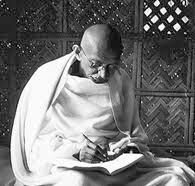

It's true, he didn't pick up the black issues in South Africa, but that was not his fight." "He was more concerned about removing racism against England.

"He was a smart and strategic politician," he said. Some Indian scholars said Gandhi may have even viewed blacks as "untouchables," the lowest class in his homeland.Īs for Gandhi's racial attitudes, they too, are inconsequential when seen through the lens of the Indian leader's larger political struggle, according to scholar Chakrabarty, who has authored three books on Gandhi. Kaffirs are as a rule uncivilized." Gandhi Eyed Blacks as Untouchables, Says Book "We could understand not being classed with whites, but to be placed on the same level as the Natives seemed too much to put up with. "We were marched off to a prison intended for Kaffirs," he is alleged to have said. such love as they hope the world has not yet seen." The author discovers that Gandhi "made Lower House promise not to look lustfully upon any woman," and the pair swore to each other "'more love, and yet more love. The book says Gandhi may have been the one to "think deep thoughts" and Kallenbach was more preoccupied with "matters of physical fitness and everything that's down to earth." In Levyveld's book, the lovers' nicknames to each other were "Upper House" and "Lower House," suggesting one may have been in a stronger position of power. But in India today, discrimination against gays is illegal and many are open about their sexual orientation. The Hindu religion, just as Christianity, frowns upon homosexuality, according to Chakrabarty, who has written several books about Gandhi. It was a very big topic in the autobiography." "He kept saying, 'I am a human being,' and he talked about sexual pleasure. Gandhi Autobiography Addresses Sexual PleasureĬhakrabarty said that Gandhi emphasized his humanness in an autobiography that was written in 1933. In letters, Gandhi wrote to Kallenbach, "How completely you have taken possession of my body. Gandhi left his wife, "Ba," - an arranged marriage - in 1908 for Kallenbach, a lifelong bachelor, according to the book. Much of the intimacy between the two is revealed in Kallenbach's letters to his Indian friend. The couple built their love nest during Gandhi's time in South Africa where he arrived as a 23-year-old law clerk in 1893 and lived for 21 years, Lelyveld writes. His lover was Hermann Kallenbach, a German-Jewish architect and bodybuilder. In a biography that hit stores this week - "Great Soul: Mahatma Gandhi and his Struggle With India," former New York Times reporter Lelyveld insists that Gandhi was gay, or at least bisexual. Gandhi, who led India to independence and is a universal symbol of peaceful resistance, had another side - a more human one. Ma- Was Mahatma Gandhi gay? A new book by Pulitzer-Prize winning author Joseph Lelyveld claims the god-like Indian figure not only left his wife for a man, but also harbored racist attitudes.


 0 kommentar(er)
0 kommentar(er)
